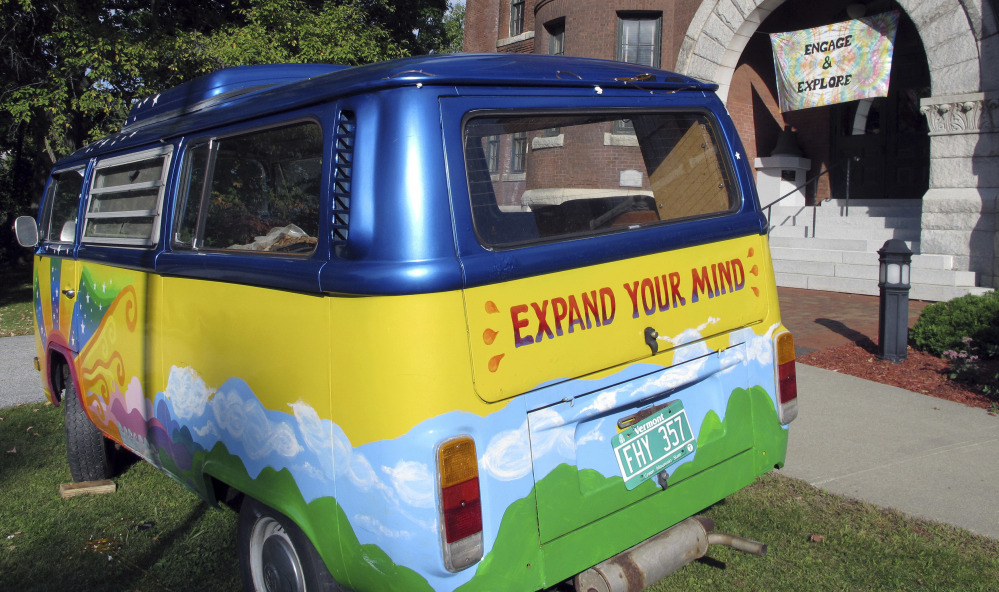BARRE, Vt. — Black-and-white photos and video footage, vintage posters and oral histories of 1970s hippies are the heart of an exhibit at the Vermont History Center in Barre dedicated to the decade that brought tens of thousands of outsiders to the state, changing the politics and culture forever.
“Freaks, Radicals & Hippies” opened Saturday after two years of research.
The yearlong exhibit on one room of the building includes oral histories from people of the time talking about social justice, food access and their memories of the counterculture. Additional recordings are also online.
Ginny Callan, who opened the Horn of the Moon vegetarian restaurant in 1977 in Montpelier, recalls closing it for a day or two whenever there was an important demonstration to attend.
“Enough people that worked at the restaurant were involved and wanted to go that it seemed more important that everybody be able to go and not sell tofu for a day or two,” she said.
The restaurant was also part of the beginnings of the local food movement. They bought and used local greens and other produce in the summer from two area farmers and yogurt from Butterworks Farm in Westfield, Vermont.
“So we were early on kind of doing that local stuff because it was just starting to spark,” she said.
Communes also sprouted up around the state in the late 1960s and ’70s, according to an exhibit map detailing the various collectives such as Earthworks or the Franklin Commune in Franklin made up of back-to-the-landers and political activists.
The state’s population increased around this time, jumping 14 percent during the ’60s and 15 percent in the ’70s. More and more of the newcomers eventually became part of the community, town and federal government and the PTA, said curator Jackie Calder.
The Franklin Commune grew to up to 40 people in the summer months but was rocked by turmoil as members experimented with switching partners who disagreed about child rearing, the exhibit said. In November of 1971, a fire destroyed the farmhouse and firewood and the commune eventually folded in 1972.
Ellen David Friedman, who became a political activist and union organizer, remembers living in an inflatable house one summer built by a group of what she called anti-architects in Plainfield.
“They got kind of industrial strength rubber and vinyl materials. And they would inflate them with industrial strength fans for people to live in,” she said.
She lived with a group in one that looked like a giant inflatable octopus, she said. “So it had a big central domed area, it was white vinyl, all welded together, with six sleeping pods that were arms. …It was hysterical. So that’s what I did in the summer of 1970.”
The exhibit runs until September 2017.
Send questions/comments to the editors.



Success. Please wait for the page to reload. If the page does not reload within 5 seconds, please refresh the page.
Enter your email and password to access comments.
Hi, to comment on stories you must . This profile is in addition to your subscription and website login.
Already have a commenting profile? .
Invalid username/password.
Please check your email to confirm and complete your registration.
Only subscribers are eligible to post comments. Please subscribe or login first for digital access. Here’s why.
Use the form below to reset your password. When you've submitted your account email, we will send an email with a reset code.